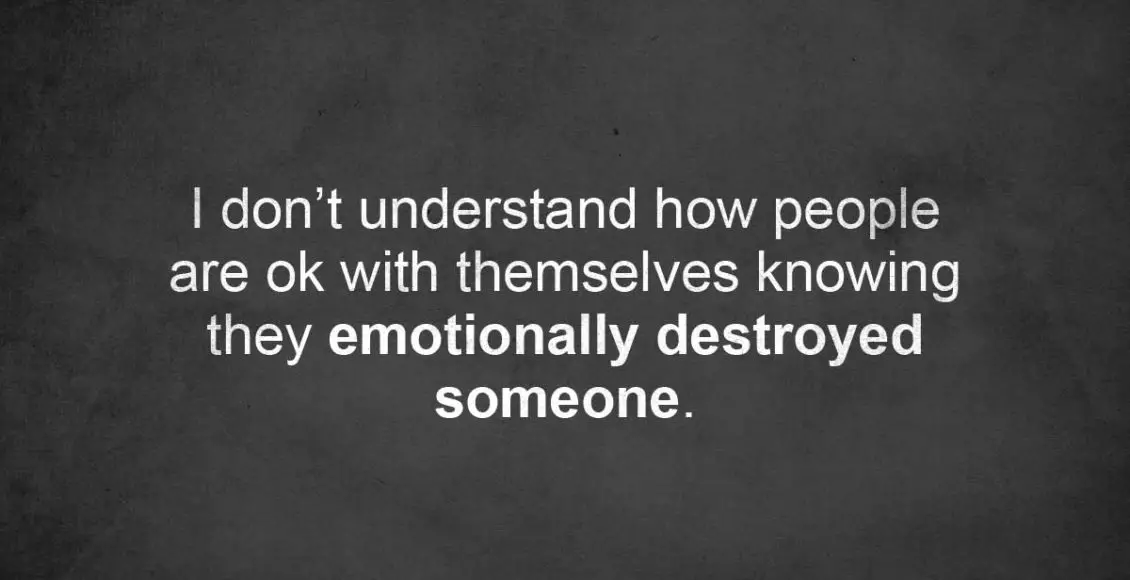I Don’t Understand How People Are Ok With Themselves Knowing They Emotionally Destroyed Someone

The Short And Long-Term Effects Of Emotional Abuse And How To Deal With Them
Our inner world is one of the things people tend to keep completely for themselves, and no matter how empathetic and caring you may be, you can never know the exact way someone is feeling, regardless of how much they try to show you.
Emotions are a deep and powerful part of everyday life, and the pain people can go through is oftentimes masked. But people who do not take the time to reflect on their feelings, on what is making them feel the way they are feeling, will not be able to learn how to bring them under control. Often people do not even realize they are the victims of emotional abuse, and in these cases, it tends to go unnoticed. Nonetheless, it is important to take the necessary time and try to be as objective as you possibly can whenever you notice that you’re feeling emotionally hurt in any way.
Emotional abuse can be as serious as physical abuse and often can be even worse.
If you are wondering whether you are the victim of such abuse, here are some of the signs:
name calling, invading your privacy, insults and ridicule, attempting to make you question your own sanity (also known as gaslighting), trying to control your life, making you feel guilty and punishing you for not doing what they want, making threats, isolating you from family and friends.
Emotional abuse can be soul-crushing and the victim is often confused to see who is at fault. Hence they will often blame themselves. However, it is never the victim’s fault!
It has been theorized that emotional abuse may even have long-term effects such as fibromyalgia, as well as chronic fatigue syndrome.
What are the long and short-term effects of severe emotional abuse?
Short term effects include:
a racing heartbeat, ache or pain, muscle tension, nightmares, constantly feeling moody, difficulty in concentration
Long term effects include:
depression, anxiety, chronic pain, low self-esteem, insomnia, social withdrawal, guilt, as well as post-traumatic stress disorder (PTSD) in some cases
Whether you are or have been a victim of emotional abuse, you need to try to discuss things, and settle issues with those involved. If nothing works, try to distance yourself from the poisonous environments that are bringing nothing but pain and harm to your mental health.
On your path to recovery, you might want to try things like journaling, talking to a trusted counselor, forgiving the abuser, taking up a hobby that gives you meaning, reaching out to others for support, minding your diet, doing physical exercise, and reading inspiring books that help you work through the pain and move beyond it.
The aftermath of emotional abuse does not have to be your “normal” for the rest of your days; you deserve much better and can take the necessary steps today to replace this harmful experience with a healthy and confidence-building one.
Did you find this article helpful? Let us know your thoughts in the comment section below.


